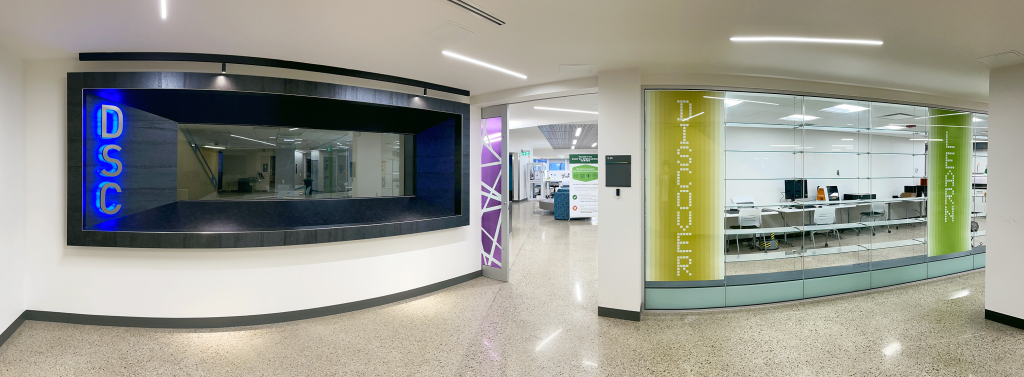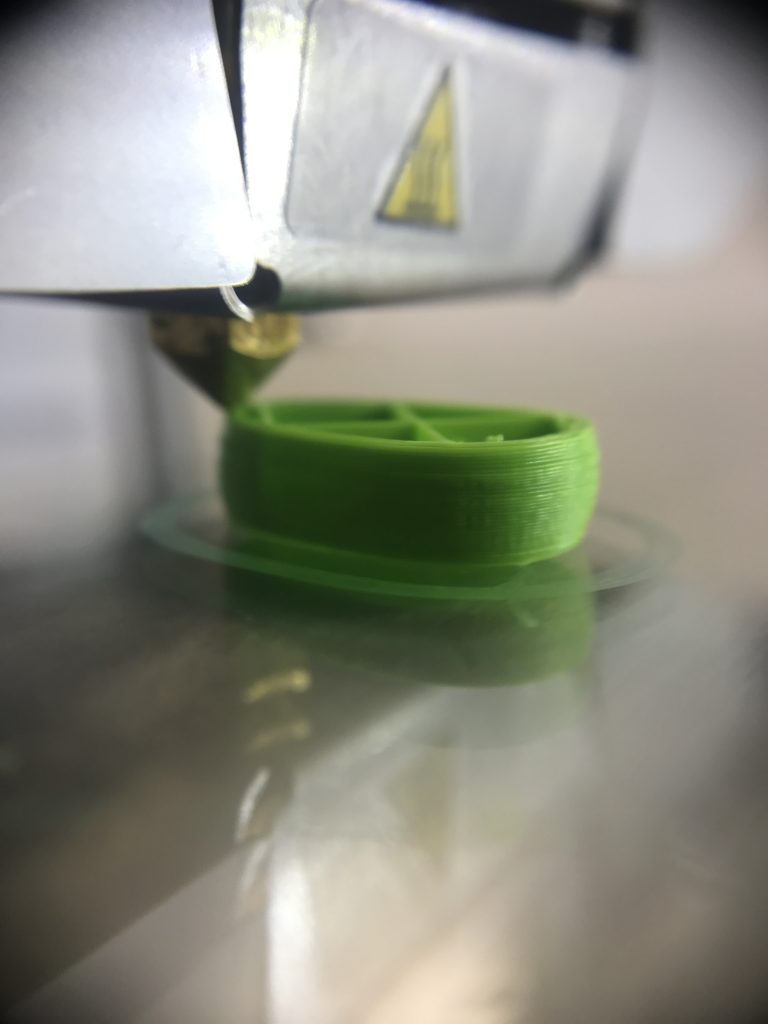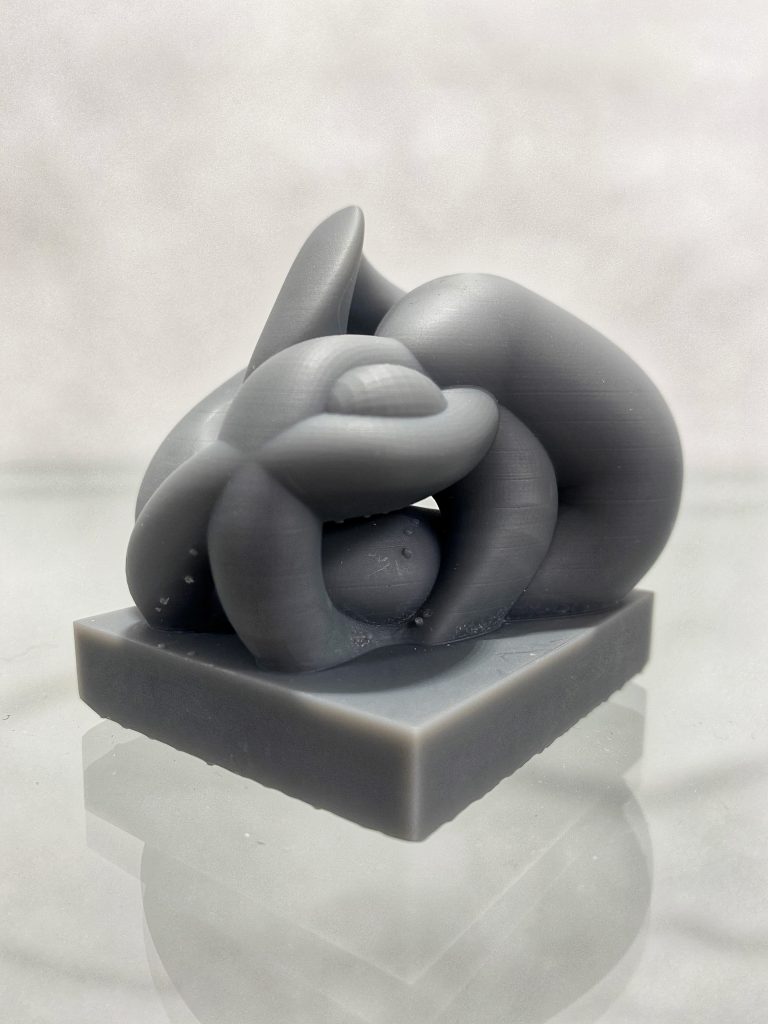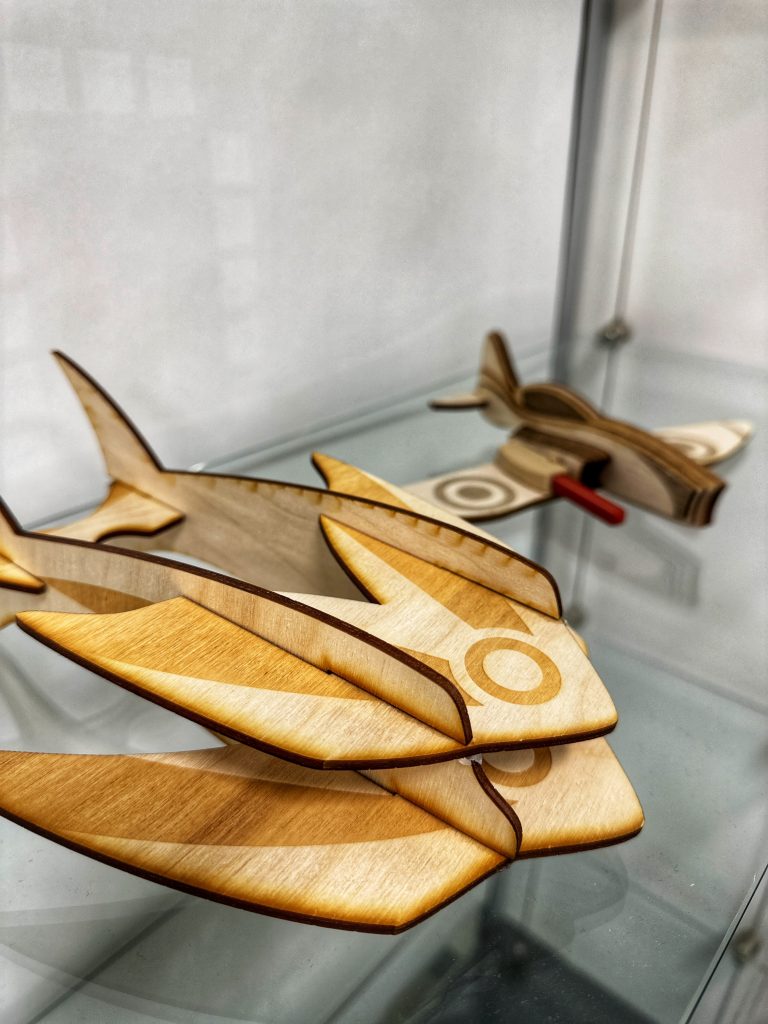
In the fall of 2019, just before the pandemic disruptions began, the library opened a new area on the 2nd floor of Cameron Library called the Digital Scholarship Centre (DSC). The mission of the DSC is to advance research and learning using technology. The DSC is an official research centre and supports the University community by providing expertise, tools and space for the use of technology. After working on an appointment basis during pandemic closures, the DSC has once again fully opened. To celebrate, we asked our DSC student assistants to write a few posts featuring the DSC and its services for the coming weeks.
By Quinn Lumsden
Quinn Lumsden is a student assistant at the DSC and in their third year of the industrial design program.
Are you looking for a way to explore your creativity and bring your ideas to life? Have a class project that you would like to do something different with? Are you thinking of designing something in relation to your research? Look no further than the Digital Scholarship Centre Makerspace. The Makerspace has tools at your disposal to help make these ideas a reality. The only limitations are your imagination and, of course, the limitations of the tools (but you’re creative and can find a way to make it work right?).

On the other side of the big purple door, we have a number of tools for any UAlberta student or staff member to use free of charge. Presently, we have 3D printing and cutting tools that we operate through a self-service model, allowing you to get hands-on experience with the equipment.
To ensure safe and responsible use, the DSC requires everyone to complete an online certification module and in-person orientation. The certification will provide an overview of the equipment, how to use it safely, as well as information on the required software. Once certified and oriented, you are free to book the tools to use, with staff members on-site to provide assistance and guidance as needed. So what kind of tools are there?
3D printers

The DSC has 4 Ultimaker fused filament fabrication printers. These are probably what you think of when you hear about 3D printing. Plastic filament is heated and pushed through a nozzle to create thin layers, which fuse together and slowly build up the print/object. We also have a Formlabs SLA resin printer. Similar to the other printers, the resin printer builds the object by layers, but it does so by submerging a plate into a vat of mysterious goo and using a UV light to harden one layer at a time. The resin printer can make beautiful and detailed pieces, though it requires more steps and takes more time than the FFF printers.
Cutting Tools
A couple of tables away from the resin printer, we have a Cricut Maker. This machine cuts, scores, embosses and draws on a variety of thin materials (2mm max) such as paper, cardboard, leather, fabric, vinyl, and thin wood. The materials are affixed to a sticky mat, which is placed in the Cricut. There are a variety of blades, tools, and pens that can then be used, depending on the material and what your goal is. The Cricut is fabulous for precisely cutting projects that would be difficult to cut by hand.

We have a Fabool mini laser cutter, which, unlike the Cricut, uses a laser (pew pew!) to cut through materials. In addition to cutting through materials, the laser cutter can engrave by leaving a nifty textured pattern or image. The cutting and engraving are done by controlled burning of materials such as wood, cardstock, paper products and leather. The Fabool certification module is still being refined so we aren’t quite ready for you to come to use it, but keep an eye out, booking and certification should be posted on the DSC website by Spring.
The making tools and capabilities of the Makerspace are really quite extraordinary and we invite you to ask staff about what other users have done. With the DSC Makerspace, students and community members have a valuable resource at their disposal, one that can help them explore their creativity, enable them to learn new skills to bring their ideas to life. To learn more, certify for tools and book time see the Makerspace page of the DSC website. If you are interested in learning 3D modelling, the DSC is offering workshops in 3D modelling basics this term. The staff of the Digital Scholarship Centre are always ready to help answer your questions involved with technology in research and learning.
